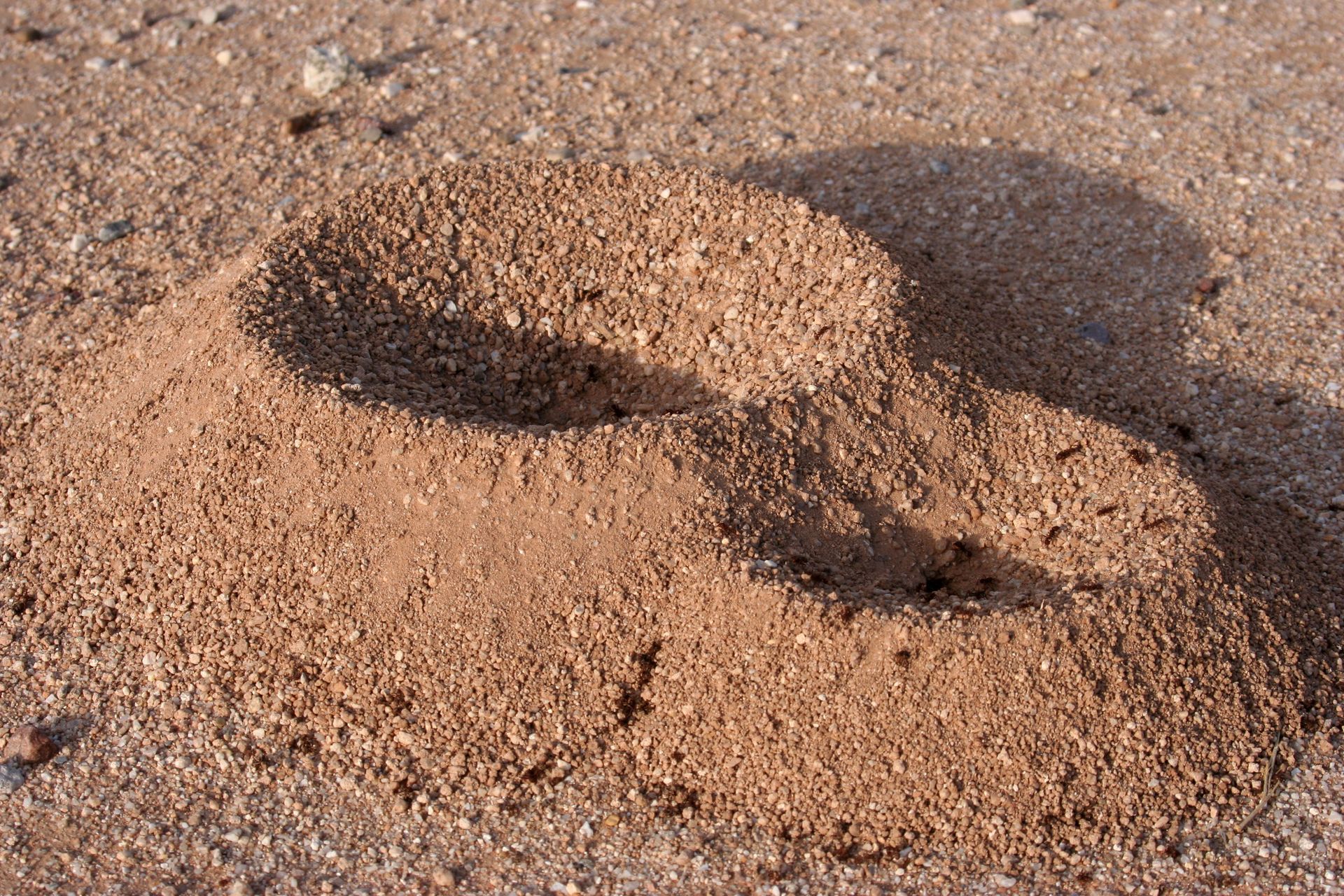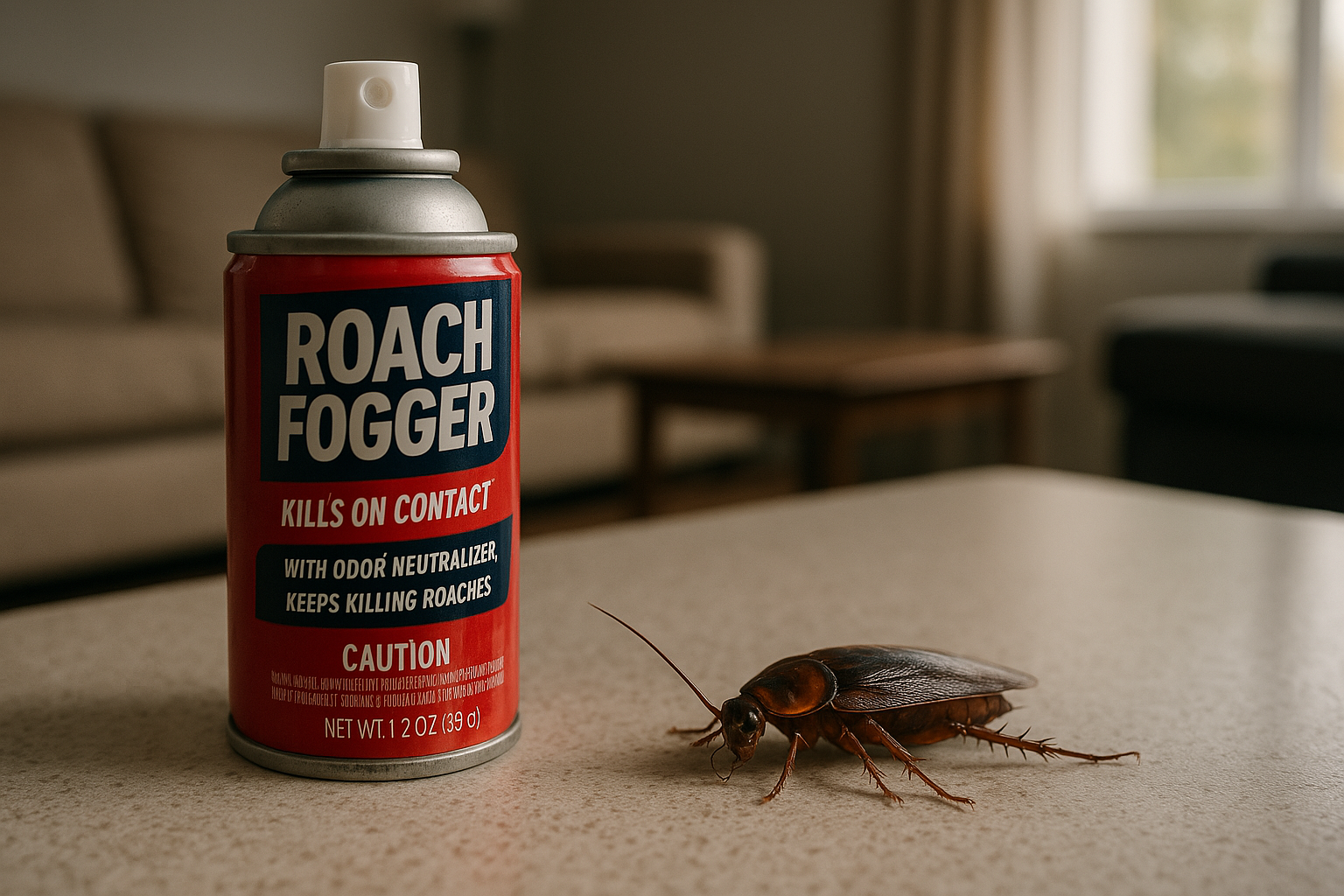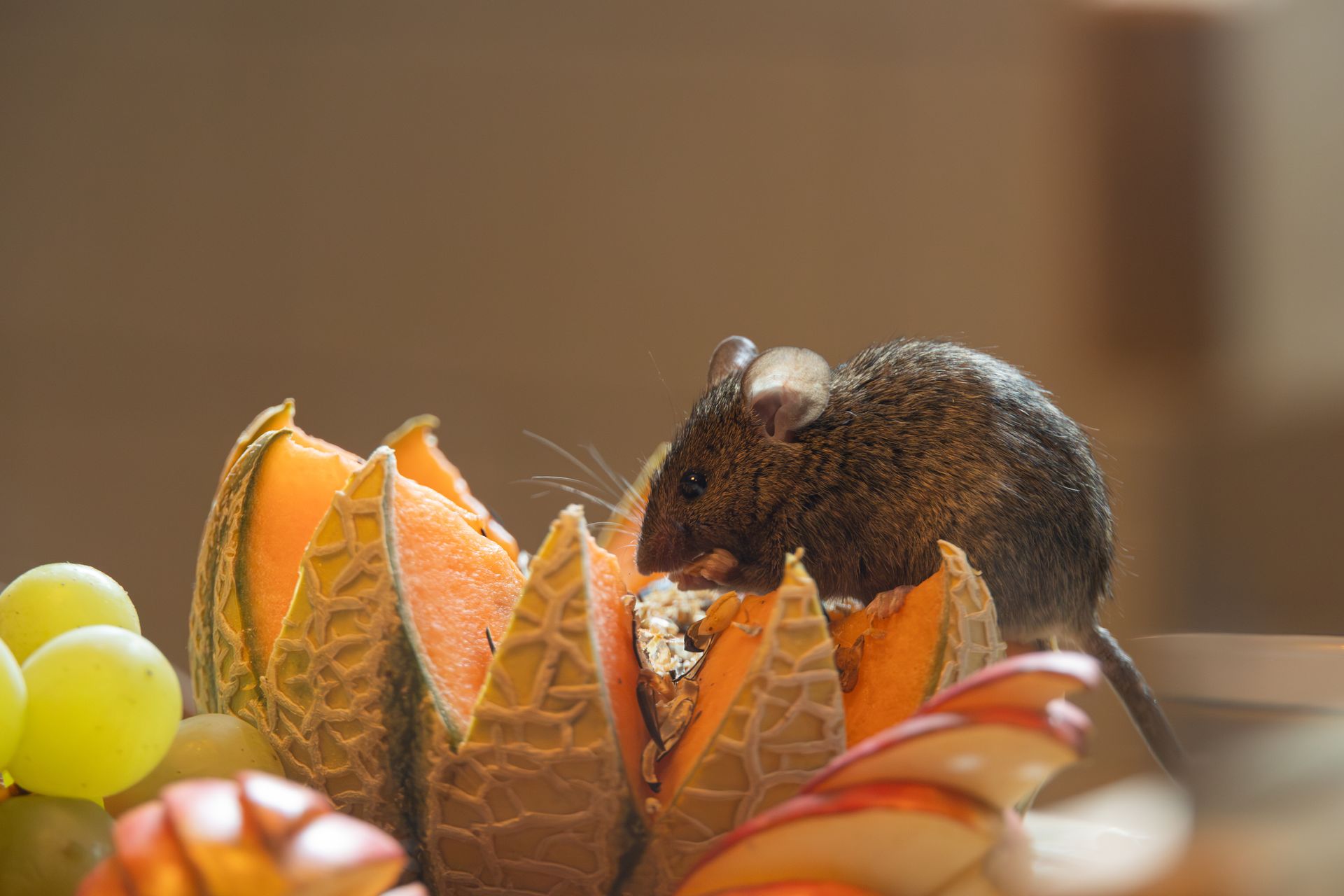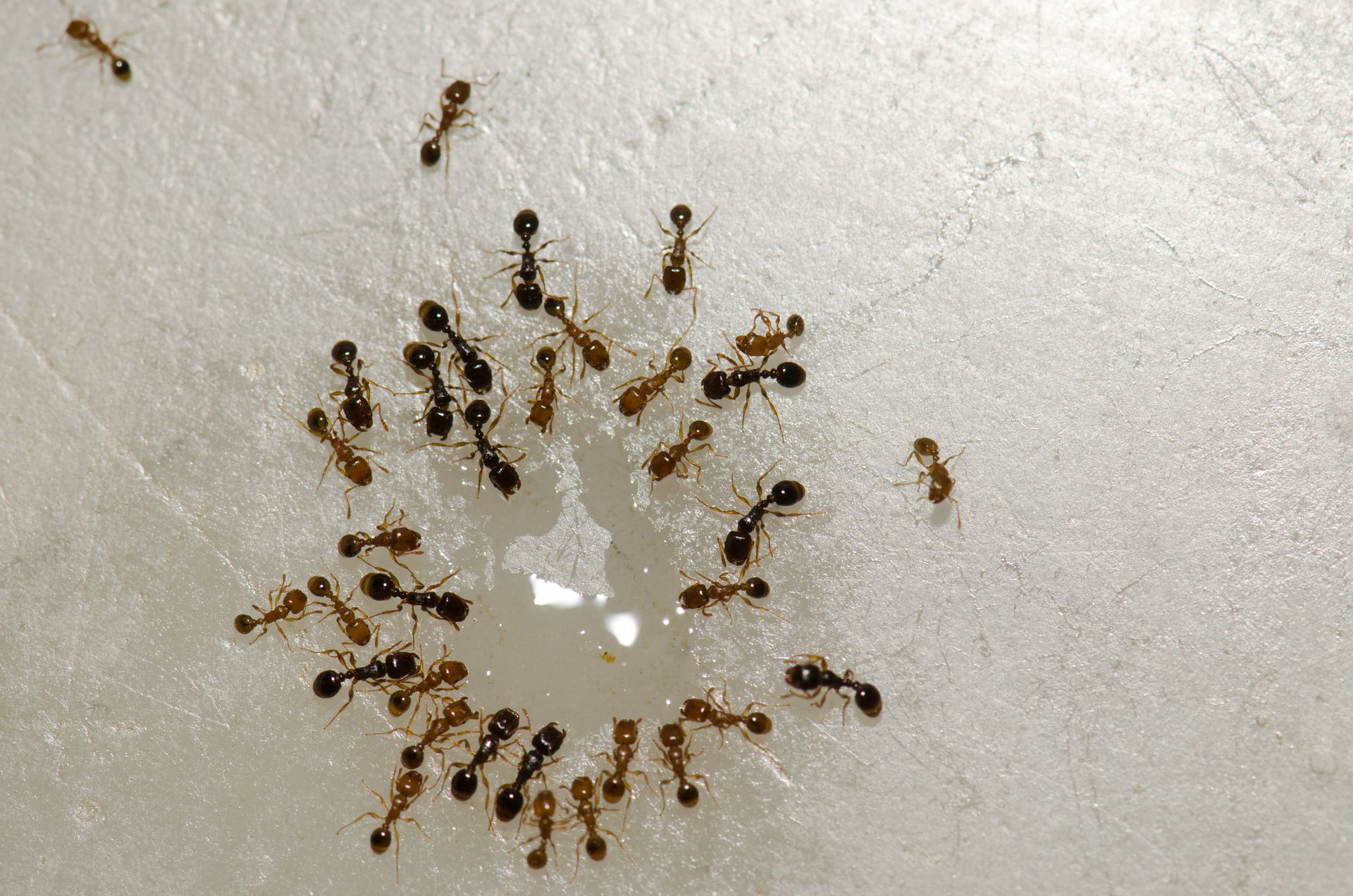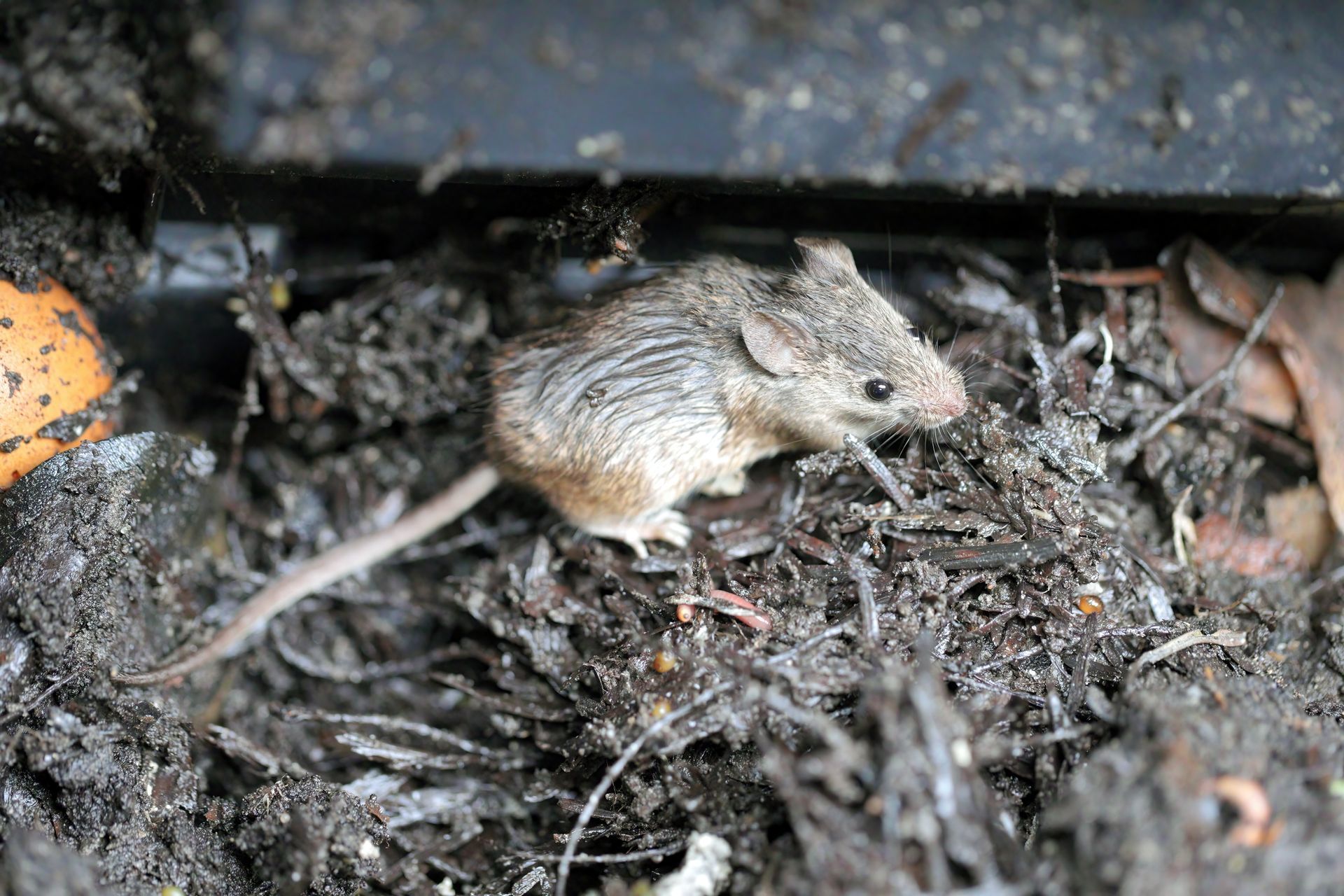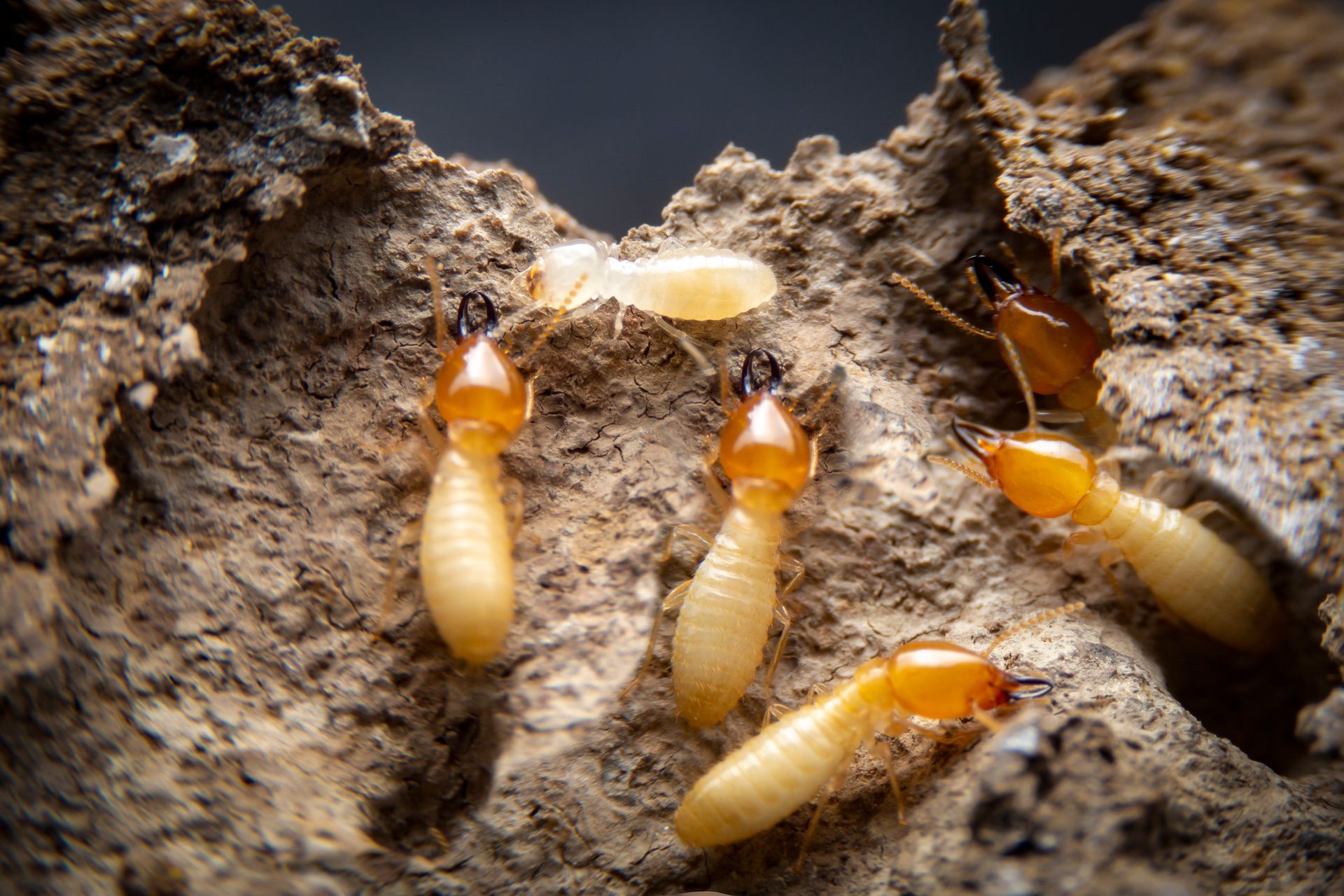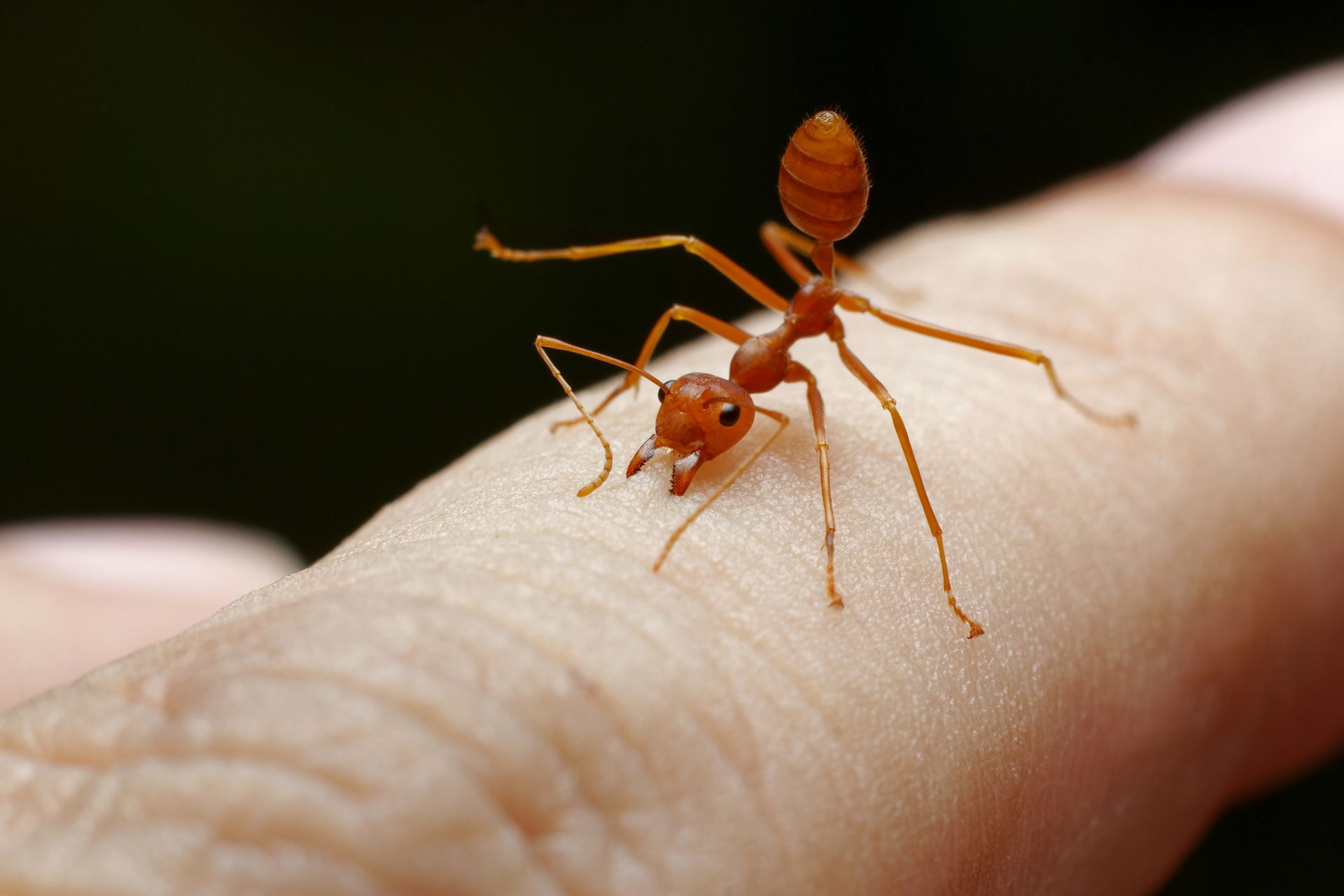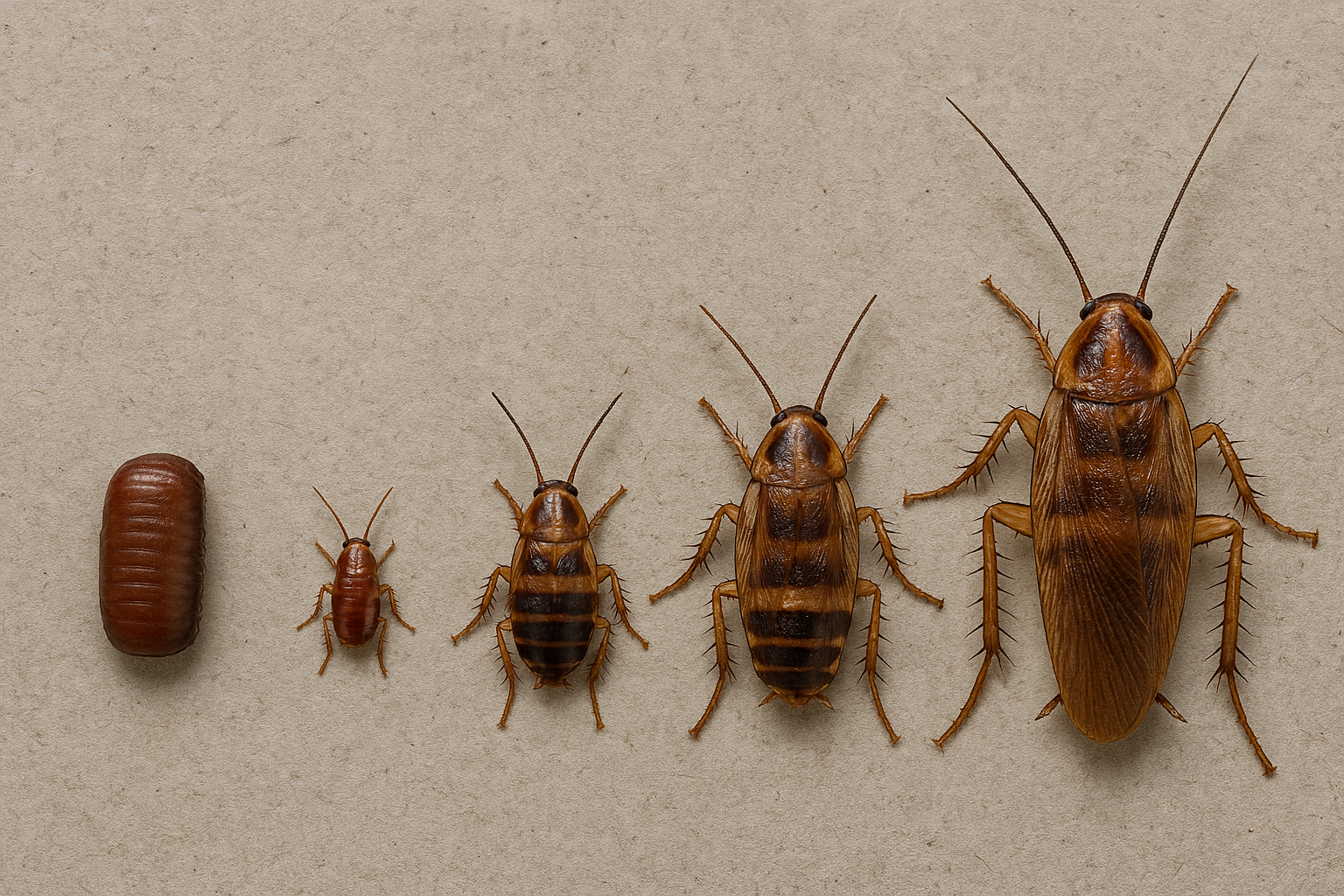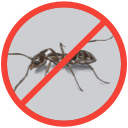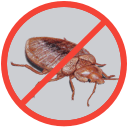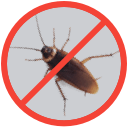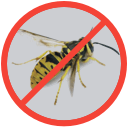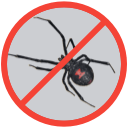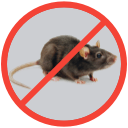How Long Do Flies Live?
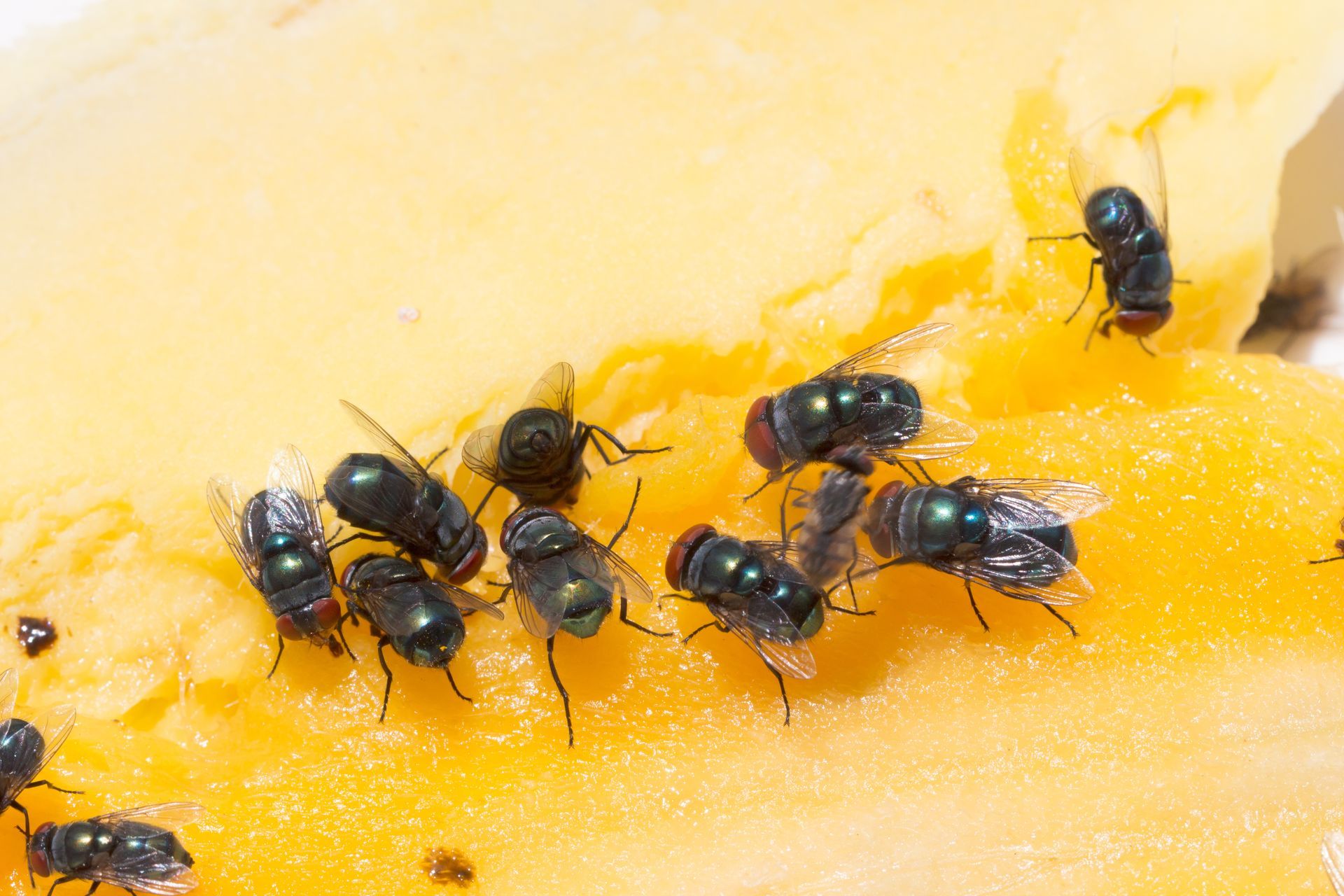
Flies are a common household pest that can be difficult to control due to their quick reproductive rate. It is a common misconception that flies only live for 24 hours but that is only true for certain species such as mayflies. House flies and other larger fly species can live for several days or even months which makes them even harder to manage. Flies are carriers of pathogens and bacteria that can contaminate food and cause illness, which is why it's important to get professional help to exterminate them.
Houseflies are the most common fly but there are other species like the horse fly, fruit fly, tsetse fly, gnat, and mosquito. The lifespan of each fly species varies, but in general, they have a shorter lifespan than people might think. In order to control flies, it helps to understand a fly’s life cycle and habits to control their population effectively.
Understanding the Fly Life Cycle
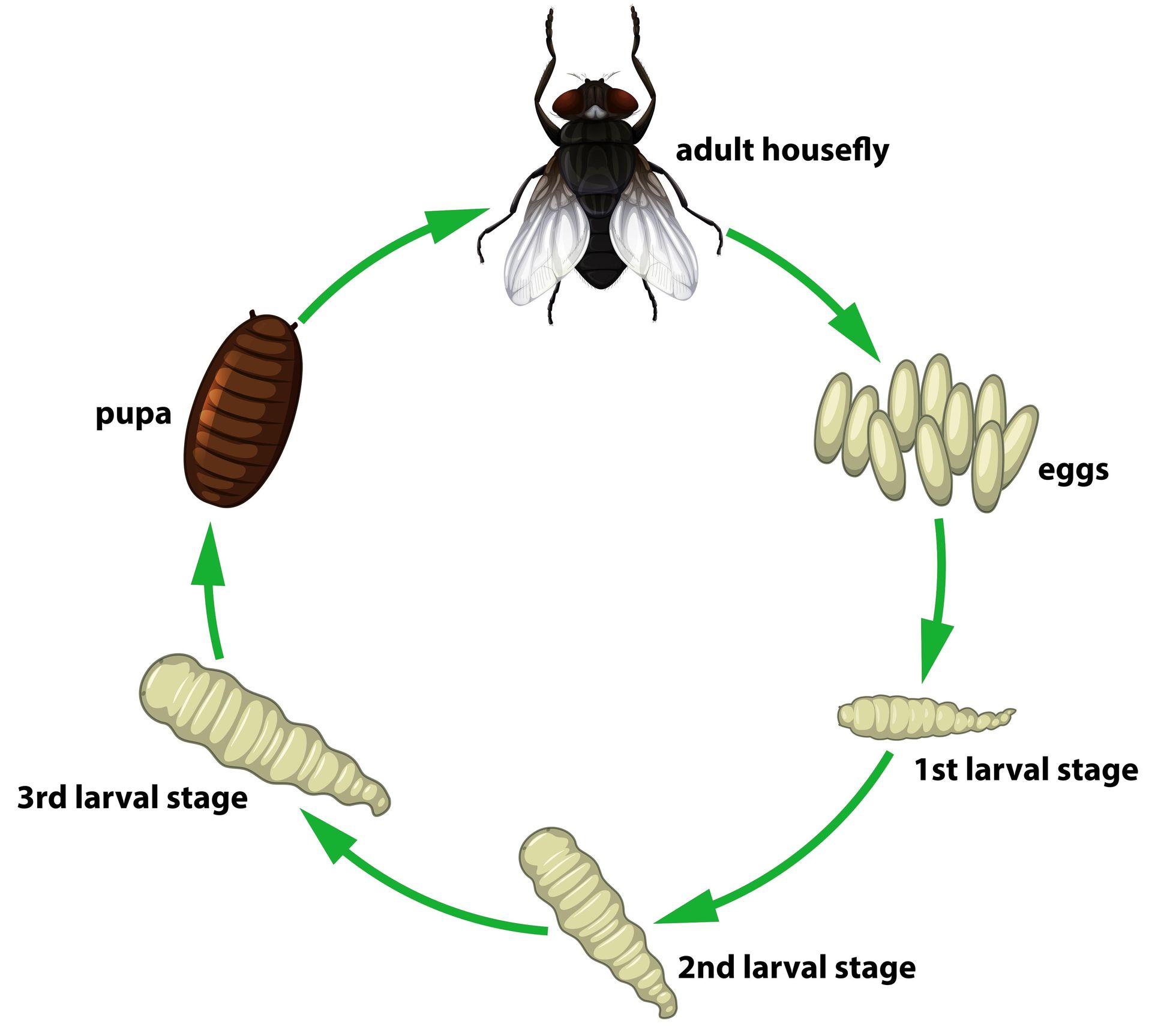
The fly life cycle starts with the egg and develops through the larval and pupal stage before reaching adulthood. Female flies lay their eggs on or near a food source so once the eggs hatch, the larvae can start feeding. After molting several times, the larvae harden into a cocoon to stay dormant during their pupal stage. After a few days, a fully grown adult flies emerge.
Fly Eggs
Female flies lay their eggs in small batches, ranging from 70-200 eggs at a time, and can lay as many as 500 eggs in just a few days. The number of eggs a female fly can lay depends on its size, which is largely influenced by its nutrition during the larval stage.
Fly eggs are typically white and around 1.2 mm in length. They can be laid individually but are typically found clustered together in dark, warm, & humid areas where they can stay moist and safe. The hatching time of fly eggs typically lasts between 8 – 20 hours but can also take several days, depending on the temperature and humidity levels. Fly eggs require moisture to hatch, and the ideal temperature for hatching is between 25 and 30°C. When several flies lay eggs in close proximity, it can result in large masses of larvae and pupae.
Fly Larvae
Flies in their larval stage are commonly referred to as maggots. Fly larvae are typically pale and worm-like in shape with one end that tapers into a point with tiny black hooks. They use the hooks to latch on to and feed on substances like animal remains, manure, and garbage that’s found where they were hatched. The larvae go through three instar phases and grow to be around 7 to 12 millimeters long before they form a pupa around themselves. The length of the larval stage depends on factors like temperature and humidity, but it typically lasts between 3 – 7 days in optimal conditions and as long as 55 days when conditions are poor.
Fly Pupae
Fly pupae are an essential stage in the life cycle of flies. After the larval stage, the larva enters the pupa stage, where it grows into an adult fly. During this stage, flies do not move or feed, but they develop a cocoon-like shell where they grow their wings, antennas, and legs. Once the fly emerges from its shell, it is fully grown and in its adult form.
The pupal stage is characterized by the formation of a pupal case made from the last larval skin, which varies in color from yellow to black as the pupa ages. While the larval stage was identified by a light thin worm with a tapered point, the pupal stage is a rounded dark brown oval with blunted ends. Pupae complete their development in two to six days at higher temperatures, but they require 17 to 27 days at lower temperatures. The emerging fly escapes from the pupal case through the use of a sac on the front of its head called the ptilinum, which it inflates to apply pressure to break through the case. Understanding the pupal stage is crucial for controlling the population of flies, as this stage can be targeted with insecticides and other pest control methods.
Adult Flies
Reaching maturity is the final stage in a fly's life cycle where they have fully developed wings, antennas, and legs. Adult house flies are 6 to 7 mm long and usually live 15 to 25 days. In optimal conditions a fly can survive up to 2 months if they can avoid death. However, without food, flies can only survive for about two to three days. Longevity is enhanced by the availability of suitable food, especially sugar. Flies are not nocturnal and will sleep at night because their vision in the dark is poor. At night flies will retire to safe places to hide like overhangs in buildings, trees, shrubs, and tall grasses. Horse manure, human excrement, cow manure, fermenting vegetable matter, and kitchen waste are highly favored sites for breeding. Within hours of reaching adulthood, flies are sexually mature and ready to reproduce and lay more eggs. They will seek out nutrition and a safe place to deposit their eggs almost immediately after an adult fly emerges from their pupal case.
How Do Flies Reproduce?
Flies typically mate within hours of hatching from their pupa case. The process begins with the male fly initiating a short courtship of any surrounding females. This ritual can last from 30 minutes to 2 hours. Any attracted female flies ready to produce eggs, will signal to the male that her eggs are ready for fertilization. After mating, the female fly seeks out a warm, moist area with sufficient food to lay the fertilized eggs. Female flies lay their eggs in batches of 75 to 200 and can lay several batches over a period of a few days.
Female flies need access to suitable food, especially protein, to lay eggs. Adult flies require food before copulating, and copulation may take as little as two minutes or as long as 15 minutes. Oviposition, or the time when the eggs are laid, typically starts 4 to 20 days after mating occurs.
What is the Lifespan of a Fly
Flies have a relatively short lifespan, typically lasting between 15 and 25 days. However, they have a different perception of time than humans do and can see objects up to four times faster than humans. This means that when we swat at them with a newspaper, it appears to happen in slow motion from their perspective. The exact lifespan of a fly in their own viewpoint remains unknown. Flies can go through their entire life cycle of egg, larva, pupa, and adult in 15 to 30 days, although this can be prolonged in warm environments with an abundance of food.
During their short lives, flies will typically lay eggs five or six times and each time they will produce up to 120 eggs. A single female fly can produce up to 3,000 eggs once she reaches adulthood. This means that one or two flies can quickly turn into a small infestation. If you have a fly infestation in your home, it is best to call a professional to speed up the process of elimination.
How Long Do Flies Live in Your House?
Flies can live their entire lifespan in your home, and depending on the type of fly, they can spend up to 4 weeks inside. Some flies can even overwinter in your home, drastically increasing their lifespan to several months. However, the average lifespan of a housefly is 15-30 days, which can vary depending on your home's conditions and environment. It's essential to take proper prevention and fly pest control techniques to avoid an infestation.
Different types of flies have different lifespans. House flies and fruit flies can lay eggs and live their entire lifespan in your home. It's essential to keep your home clean, store food properly, seal windows and doors, and take out the trash often to prevent fly infestations. If you are doing these things and still see many flies in your house, it might be time to contact a local pest control service.
Fly Lifespan is Dependent on Species
The lifespan of a fly is also largely dependent on the species of the insect. Some flies will live for several weeks while others die off much faster.
House Fly Lifespan
House flies have an average lifespan of around 20 to 30 days, during which females can lay up to 5-6 batches of eggs. The house fly lifecycle involves four stages: egg, larvae, pupae, and adult. Eggs hatch in 12-24 hours, larvae feed for 4-7 days, pupae develop for 4-6 days, and the adult fly can live up to 28-30 days.
House flies can survive longer or shorter than the average lifespan depending on their living conditions and food availability. Low temperatures with enough sugar and protein are critical to a house fly’s longevity. Although house flies are relatively short-lived, they can be a cause for concern as they can indirectly affect our food by carrying diseases on their legs and mouths. Therefore, it is important to take measures to prevent infestations and to learn about their life cycle to control their populations.
Fruit Fly Lifespan
Fruit flies have a lifespan of about 40-50 days, which is longer than that of house flies. They can produce several generations within this time frame, with one female fruit fly capable of producing up to 500 offspring. Fruit flies are attracted to ripe or decaying fruits and can quickly reproduce in these environments. The life cycle of a fruit fly includes the egg, larvae, pupae, and adult stages, with each stage lasting only a few days. In a short period, flies can develop from an egg to an adult in as little as a week. Once they reach adulthood, they can live up to 40-50 days.
Fruit flies can be found in damp areas of the home such as the kitchen sink, mops, buckets, and open bottles. They are tiny in size and can be easily recognized by their characteristic wings. Although fruit flies do not directly harm humans, they can be a nuisance and contaminate food by laying eggs in it.
Horse Fly Lifespan
Horse flies are known for being bloodsuckers and bothering horses and other animals. They are larger than houseflies and can grow up to the size of a bumblebee. The lifespan of a horse fly is different from that of a housefly. The female horse fly lays eggs on the grass in the fall, and the eggs hatch into larvae over the winter. By spring, the horse fly has developed into the pupae stage, and by early June, it emerges as an adult. The adult horse fly can live up to 30-60 days.
Tsetse Fly Lifespan
Tsetse flies are found exclusively in Africa and are known for carrying a deadly disease called sleeping sickness. Female tsetse flies have lifespans between 1 - 4 months, while the male only lives for 2 – 3 weeks. The unique reproductive cycle of the tsetse fly involves the female carrying the larvae in her body for around 9 days before giving birth. The larvae then burrow into the ground to complete the pupae stage, which takes about 3 weeks to a month. Once the tsetse fly emerges as an adult, it can live for 30-120 days.
Tsetse flies are a significant problem in Africa, as they attack humans, livestock, and other animals. The disease they carry, sleeping sickness, is fatal if left untreated. While medications are available to cure the disease, tsetse flies remain a major threat to both humans and animals in Africa.
Gnat Lifespan
Gnats are a type of small flying insect that are often found around plants and in damp areas. Despite their resemblance to baby flies, gnats are actually a distinct species with a short lifespan. The average lifespan of a gnat ranges from 7 to 14 days, making them one of the shortest-lived insects.
Fungus gnats, a type of gnat commonly found in house plants, feed on fungus present in soil that is overwatered. Gnats have a life cycle similar to that of other flies, with development lasting from a week to two weeks. Adult gnats can be a nuisance, buzzing around people's faces or invading homes, but they do not pose a significant threat to humans or animals.
How Long Can Flies Live Without Food?
Flies need to eat at least every two to three days otherwise they will starve to death. Flies also need to consume high calory content, which is why they are commonly found feeding on sugars and proteins. Certain proteins are also needed as nutritional building blocks for houseflies to produce their eggs.
Adequate hydration is also critical to a fly’s survival, but most of the time a fly will be able to extract most of the hydration it needs from the sources of food it feeds on. Flies in your home can survive for up to a month, but without food, they will not have a suitable environment to survive in for longer than a few days.
How to Get Rid of Flies
It's important to take measures to prevent and eliminate fly infestations because flies can spread disease and contaminate food. Taking simple steps like fixing any damaged window screens and cleaning up any trash and sink drains can help prevent flies. If you already have a fly infestation, it may be time to enlist the help of professionals who can provide treatment to fully eliminate the problem.
It’s better to let trained professionals use chemical pesticides and other treatment options to deal with fly problems. Pest control technicians can conduct a full property inspection to find all the probable locations for where flies are laying their eggs, including drains and gaps in siding or roofing. Once identified, a treatment plan can be initiated to get rid of flies and offer solutions to keep them away for good.
Prevention is critical when it comes to managing fly activity. Regular cleaning and maintenance of your home can help keep flies away. However, if you do have an infestation, it's important to seek professional help to fully eliminate the problem and prevent future occurrences.
How to Prevent Flies
Flies are a health hazard so it is important to do what you can to prevent them. Flies are attracted to food and water sources so be sure to:
- wipe down surfaces
- store food properly
- fix leaks
- take out the trash regularly
It also helps to seal all windows, doors, and cracks in your home to keep flies out. If you've taken all these measures and are still experiencing a fly problem, it might be time to contact a local pest control service for professional help.
Contact EcoGuard if You Are Dealing with a Fly Problem
If you're tired of dealing with pesky insects in your home, you're not alone. At EcoGuard Pest Management, we understand how stressful it can be to have flies or other bugs constantly buzzing around. That's why we're committed to helping you keep your home free of pests. Call today to speak with one of our qualified and trained fly control experts to schedule an inspection. Our team will inspect your property for problematic areas and provide treatment and guidance on how to prevent further fly activity in the future.


